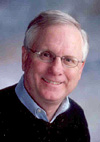Center For Church Music, Songs & Hymns

Recent articles
- Kids Choir Camp 2012: A Soldier of the Cross!
- Kids Choir Camp 2011
- Billy's Questions: Session 1
- How I Can Help
- The Song of the Cross
Great Hymns of the Faith CDs
Categories
- Church Musicians
- The Weight of Glory
- Be Prepared
- Singing Hymns
- Singing Lessons
- John Wesley on Singing
- Singing: A Call to Excellence
- Lay People
- Billy's Questions
- C.S. Lewis on Worship
- Kids Choir Camp
- A Song of Christmas
- Singing Hymns
- Knowing Christ
- Christmas Eve Truce
- Pastors
- Music
- Church Musician
- Worship
Our Author

Music & Worship
The Early Church: Singing Saints I
Sing praise to the LORD, you saints of His,
And give thanks at the remembrance of His holy name.
Psalm 30:4
Much of the music of today’s church would have little meaning to those hardy saints of the early church. For them, music was the means for Spirit-led prayer and praise—not a pathway to an emotional experience.
St. Paul’s command to "be filled with the Spirit—speaking to one another in psalms, hymns and spiritual songs" found in Ephesians 5 reflected the role of the Holy Spirit in music of the early church. Hymns about Christ, and the Psalms, were a part of the believer’s daily experience.
St. Ignatius, writing about 110 AD, said: "You must, every man of you, join in a choir, that being harmonious and in concord and taking the keynote of God in unison…sing with one voice through Jesus Christ to the Father…"
Singing was central in the early church because the powerful pattern for the worship of the church was the heavenly worship found in Revelation 4 and 5. (See Isaiah 6:1-4 and Ezekiel 3:12). Many early church fathers (leaders) speak of this connection in relation to worship.
Because of this, the early church took a very consistent and conservative approach to music. For if a chant took them to "heaven", the treatment of the music of worship needed to be as "otherworldly" as possible.
There is much more to be said about this and beginning next month, we’ll take a look at the music of worship—from the early church to now. Our aim is to present information that will stimulate your thinking and clarify the role of music in our culture and the church.
For the Spirit-led early church,
the significance of music as expressed in Psalm 30:4 was normative and
expected. Sing praise
to the LORD, you saints of His
and give thanks at the remembrance
of His holy name.
Singing praise to God is for saints!—and the song of the saint must be inexorably linked with God’s holiness. As the Hebrews sang their praise, their song reflected the character of God’s holiness—and then, the worshipers expressed their gratitude for this unspeakable privilege.
Today, cynicism, rebellion and alienation are the all too common marks of the 21st century. Our culture, both in and outside of the church, appears powerless to significantly alter these widespread emotions. But the Power behind great music, including great hymns, can indeed make a difference. Life can be lived with the joy and power of those early Christians. Join us next month as we begin this exciting series on church music. And saints? Keep singing those hymns!
